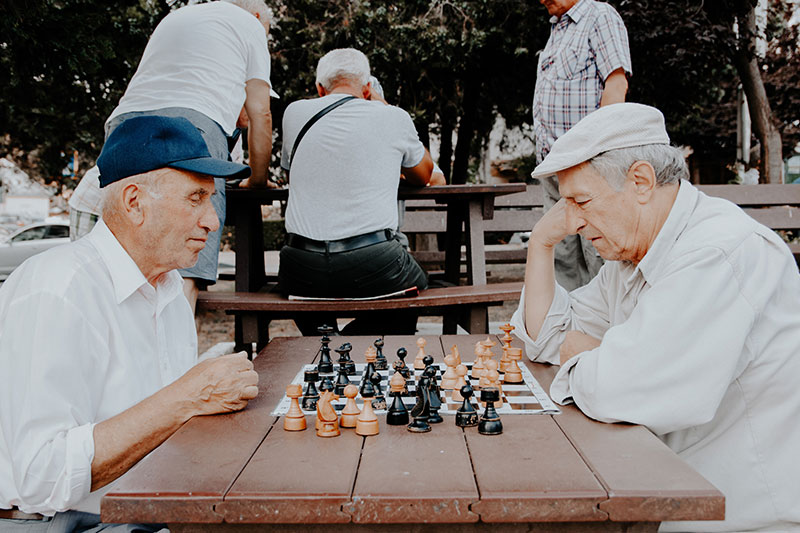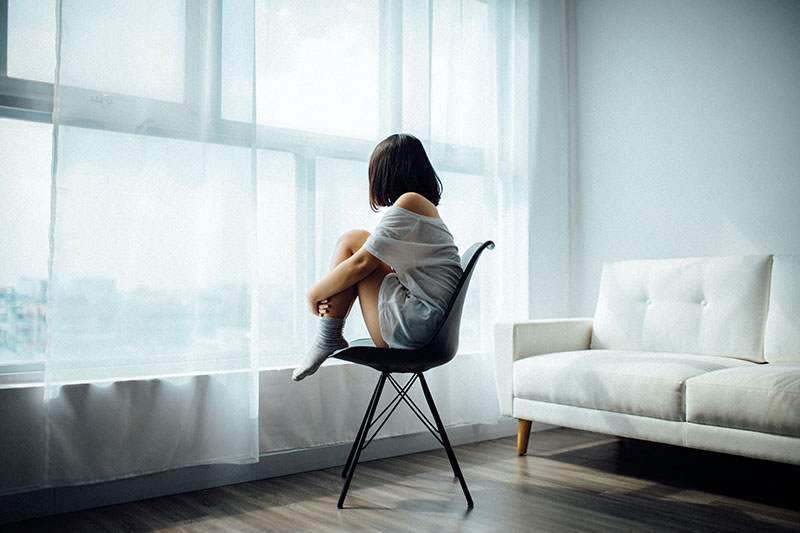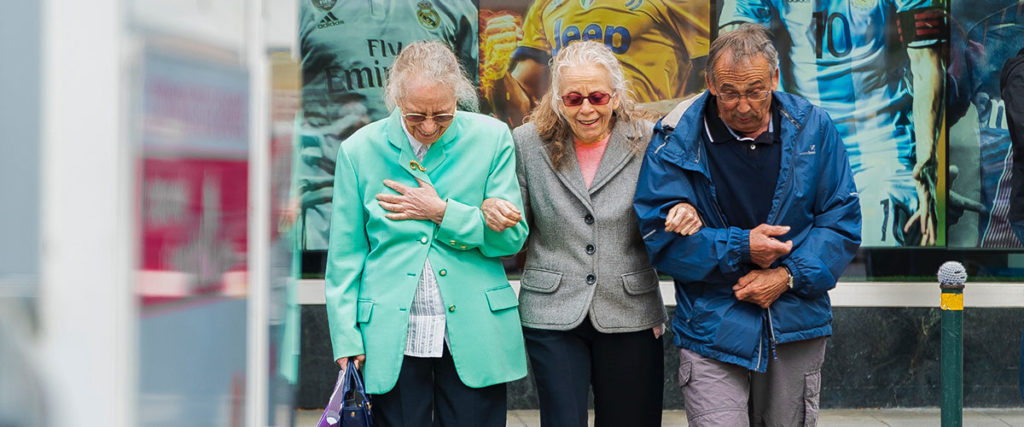Internationally renowned geriatrics expert Dr Murali Rao discusses the importance of healthy ageing, mental health, and mental illness.
Have you heard about the 96-year-old who just got his bachelor’s degree? Or the 87-year-old competitor at the Ironman World Championship? Maybe there is some truth to the saying, “Age is just a number” – and it’s being backed by medical opinion.
Having specialised in psychiatry for over 35 years, Dr Murali Rao currently sits as the Chairman of Psychiatry and Behavioural Neurosciences at Loyola University in Chicago. His new evidence-based book, 50+ and Healthy, emphasises the importance of nurturing our mental health as we get older.
Prompted by his own elderly patients who suffer from visual, auditory, and cognitive problems, his book hopes to eliminate stigma through awareness and education, with proceeds going to his non-profit organisation, the NNDC-IF.
Sitting down with Hive Life, Dr Rao discusses mental health, the stigma surrounding mental illness, and the lifestyle changes we can do to protect our minds and bodies as we age.

Why do you think mental illnesses are still considered taboo within today’s society?
Unfortunately, physical and mental illnesses are not given the same weightage. There is no stigma attached to physical illness, whereas mental illnesses are generally looked down upon as a personal weakness. Because there are no external signs of mental illness, it’s hard for others to recognise when something is wrong. For example, with depression, other people only notice that an individual has become increasingly lazy or unproductive, but fail to see or understand the inner pain they are suffering. Serious symptoms and unpredictable behaviour often result from mental illnesses – and people are scared of that.
How does this stigma play into the mental illness itself, possibly worsening it?
Stigma is the kind of “rejection” a person experiences from society. Others start to distance themselves from the individual by not inviting them to social events or choosing not to engage in conversation with them. It’s not just external stigma though. The person who is experiencing mental illness may also feel a sense of internal stigma towards themselves. The fear of becoming alone, experiencing a progressive decline, or even the thought of being a burden on others can be daunting. They could be aware that they’re experiencing some degree of mental decline or confusion and feel shame in presenting themselves that way, so they try to keep hush about it. But this actually ends up causing further suffering because social isolation and loneliness only add to the problem.
How does this relate in terms of ageing?
The generic understanding of ageing is that it means we are going to decline, we are unattractive, and we are unemployable. It seems that people in our society feel a desperate need to represent themselves as being younger because of this. There’s actually a lot of myths about mental illness that’s correlated with ageing. People associate ageing with memory problems and cognitive decline, but this is not at all correct. There are plenty of high functioning healthy individuals in their 80s and 90s. Things do change, but it doesn’t necessarily have to decline.
Do mental health concerns generally differ dramatically between, say, youths and the elderly?
Surprisingly, 75% of all mental illnesses occur around or before the age of 25. Beyond this point, there are no interfering hereditary factors. Symptoms of mental illness that stem from early childhood traumas or significant psychosocial life-events would have shown up as maladjustment by then. The other 25% are usually late-onset conditions past the age of 50 – most frequently depression, mild cognitive impairment, dementia and/or other neurodegenerative disorders. These conditions tend to be acquired because of lifestyle and habitual factors like diet, exercise, smoking, and alcohol consumption. No matter what age, we have to keep addressing mental wellness to maintain intellectual curiosity and to cope with new stresses and challenges that we encounter in life.

Are effects and symptoms more severe for the elderly?
Late-onset mental illnesses are often signals to more serious physical problems. For example, let’s say a person who has never experienced depression before, nor had any genetic predisposition in their lifetime, is experiencing it for the first time at age 50. Studies have shown that patients often end up having had vascular damage to the brain, to the heart, in the myocardial infarction, or a stroke. Untreated depression can also end up in early onset of Alzheimer’s disease, so being diagnosed with depression beyond the age of 50 has to be taken especially seriously. Health is very important at that time, so the body is essentially calling for a healthier, less sedentary lifestyle.
Are symptoms of mental illness/cognitive decline easily identifiable?
It’s interesting because we all experience some form of mental anguish within our lifetime. In fact, one in four people are likely to experience depression sometime in life. Whether it be from losing a job, separating from a spouse, or moving to another country, we’ve all come across experiences of low moods. So it’s a common “symptom” we’ve all experienced, but there’s a difference in quantity. You make a diagnosis of mental illness when symptoms are in such large volumes that it makes you impaired. Mental health and mental illness are very subtle in differences and that’s why people can be so quick to try and dismiss it as an illness.
What have you noticed with the current threat of COVID-19 and its effect on people?
The impact of isolation and lockdown has definitely brought out a lot of conflicts and issues. We’ve seen an increase in abusive behaviour, substance abuse, depression, and anxiety. Everything has been curtailed, so the most vulnerable have taken the biggest brunt of this pandemic. It’s especially hard for the elderly who may not be capable of living by themselves. People usually need to come in and out to help them, but it’s very hard with social distancing measures in place trying to prevent spread and contamination as well. A lot of volunteering is necessary during a crisis like this to make sure communities are geared up and coming up with activities like food and grocery donations, or even making phone calls to keep them company.
What advice would you give to people in their late 40s to help them start ageing healthfully?
A healthy lifestyle has five criteria points: not smoking, doing a total of 150 minutes of exercise per week, light to moderate alcohol consumption, a high-quality diet, and engagement in cognitive activities to keep the mind active. For achieving good mental health, I’d recommend getting in 7-10 hours of sleep, doing regular physical activity, focusing on nutrition, and managing your stress. Just be aware of your surroundings, remember to appreciate everything, and live in the present instead of worrying about the past or future.
We’re living in an age dominated by technology with great advances being made in medical tech. What do you hope will be achieved in the next 5-10 years?
I think the biggest thing is the incidence of dementia. Unfortunately, we’ve had no major breakthroughs in the treatment of dementia in the last 14 or 15 years since the last drug was introduced. Hopefully, with technology and a growing focus on brain-related research, there is potential that we will start to find the causes of dementia and how to identify, prevent, and reverse the process for younger people.
Related Articles
This Japanese Entrepreneur is Developing Smart Pyjamas for an Ageing Population
This Japanese Scientist Created an AI Therapy Robot for Elderly Patients
One Man’s Journey: Changing How We Talk About Men’s Mental Health





